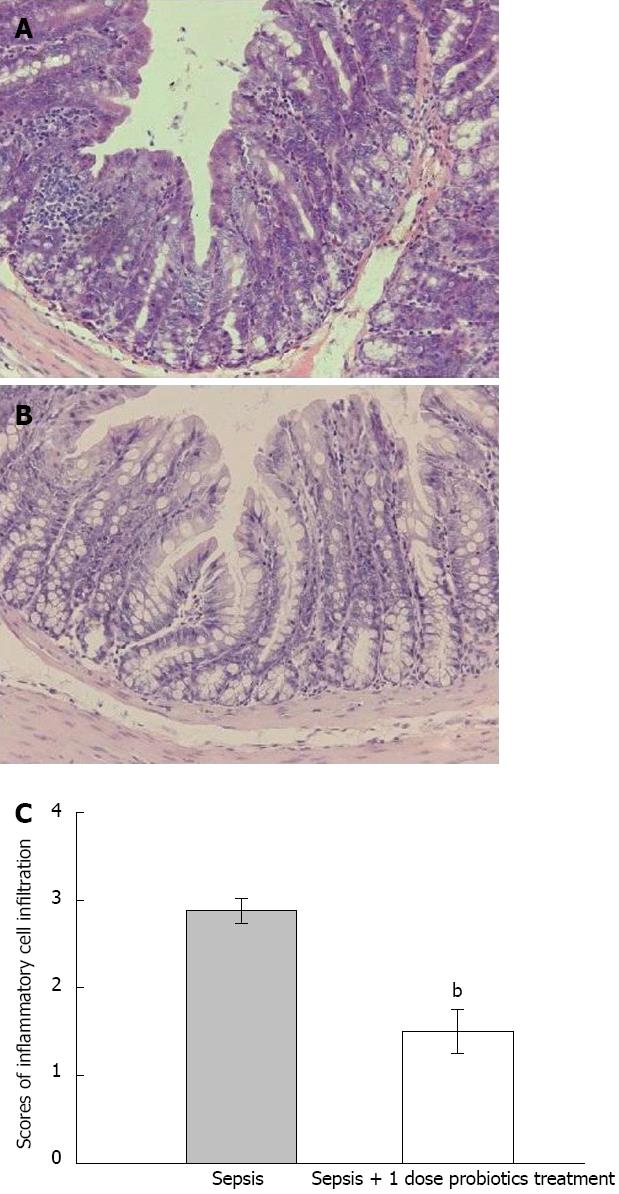Copyright
©2013 Baishideng Publishing Group Co.
World J Gastroenterol. Jul 7, 2013; 19(25): 4053-4059
Published online Jul 7, 2013. doi: 10.3748/wjg.v19.i25.4053
Published online Jul 7, 2013. doi: 10.3748/wjg.v19.i25.4053
Figure 4 Colonic mucosal inflammation of experimental sepsis.
Probiotics (1 dose) or vehicle treatment started 6 h later and thereafter administered once a day for 3 d. We harvested colonic tissues after a 72 h period of cecal ligation and puncture. The sections of colonic tissues were stained by haematoxylin-eosin (× 400). Four fields of each sample were assessed. More neutrophils and mononuclear cells infiltrated into the intestinal mucosa in septic model group (A) than probiotics treatment group (B). We also compared scores of inflammatory cell infiltration between two groups (C) (bP < 0.01 vs septic model group).
- Citation: Liu DQ, Gao QY, Liu HB, Li DH, Wu SW. Probiotics improve survival of septic rats by suppressing conditioned pathogens in ascites. World J Gastroenterol 2013; 19(25): 4053-4059
- URL: https://www.wjgnet.com/1007-9327/full/v19/i25/4053.htm
- DOI: https://dx.doi.org/10.3748/wjg.v19.i25.4053









